According to the Department of Industry, domestically produced automobile products have reached regional and international markets, including markets with very high standards.
Strong development in both quantity and quality
According to the Department of Industry (Ministry of Industry and Trade), despite being affected by the Covid-19 pandemic, the Vietnamese automobile industry has grown quite rapidly in the past 5 years. For example, in 2022, the number of domestically assembled vehicles reached 344,000 vehicles; in 2023, it reached 361,309 vehicles; the total accumulated domestic automobile production output in the first 10 months of 2024 reached 336,500 vehicles, an increase of 22.4% over the same period in 2023. This growth rate has improved compared to the increase of 15.8% in the first 10 months of 2023.
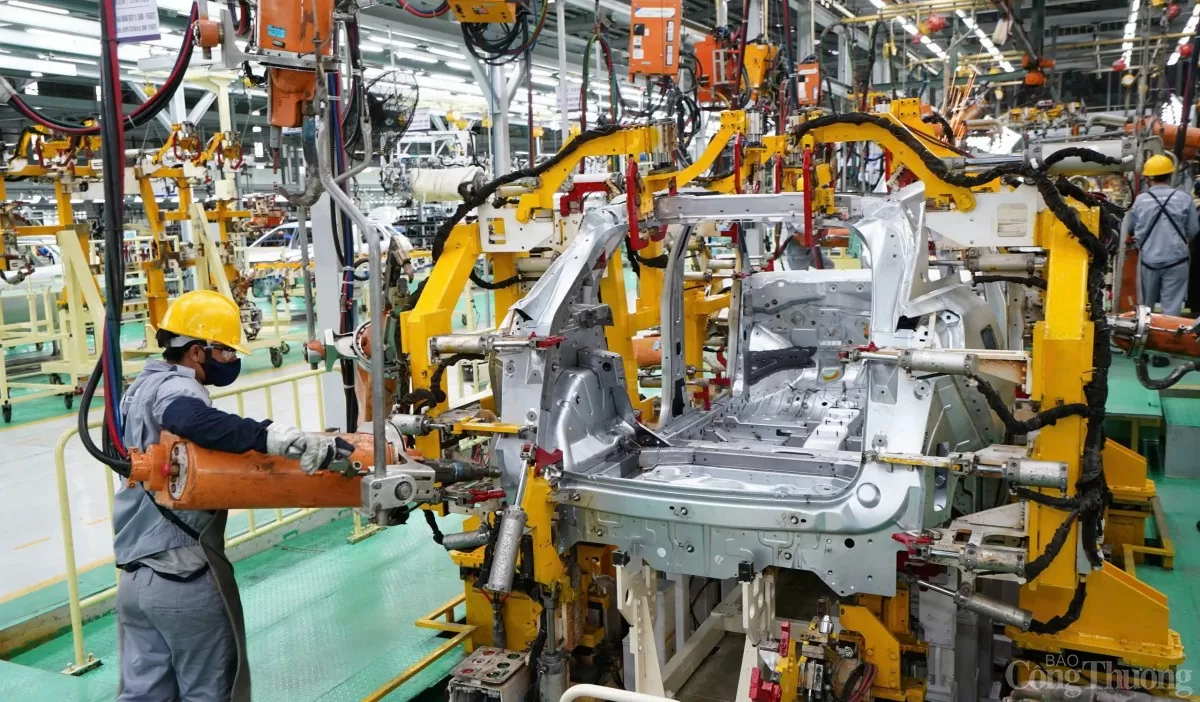 |
| Domestic automobile manufacturing and assembly enterprises - Photo: Can Dung |
Domestic manufacturing and assembly enterprises have initially affirmed their role and position in the domestic automobile market and have made strong progress in both quantity and quality.
By the end of 2024, the country will have more than 40 automobile manufacturing and assembling enterprises with domestic production and assembly output meeting about 70% of domestic demand for vehicles under 9 seats. Many large companies in the world have automobile manufacturing and assembly activities in Vietnam. Some domestic enterprises have deeply participated in the global automobile production chain.
Domestically produced automobile products have reached regional and international markets, including markets with very high quality standards (such as Thaco exporting semi-trailers to the US, Hyundai Thanh Cong exporting cars to Thailand, and Vinfast exporting electric cars to the US, Canada, Indonesia, etc.).
"This is a positive signal for Vietnam's automobile industry, proving that domestic automobile production and assembly capacity has improved a lot, gradually approaching regional and international quality standards, participating more and more deeply in the global value chain" - the Department of Industry commented.
Light trucks under 7 tons, passenger cars with 25 seats or more, and specialized vehicles produced domestically have achieved a high localization rate, reaching the set target, basically meeting domestic market demand (trucks up to 7 tons meet about 70% of demand).
At the same time, it contributes billions of USD/year to the state budget and creates jobs for hundreds of thousands of direct workers. The quality of domestically produced and assembled vehicles and imported vehicles is strictly controlled, ensuring consumer rights.
Continue to research and propose support policies.
However, Vietnam's automobile industry is currently only participating in the low segment of the automobile industry value chain; heavily dependent on the production division of global automobile corporations, and has not yet mastered core technologies such as engines, control systems, and transmission systems.
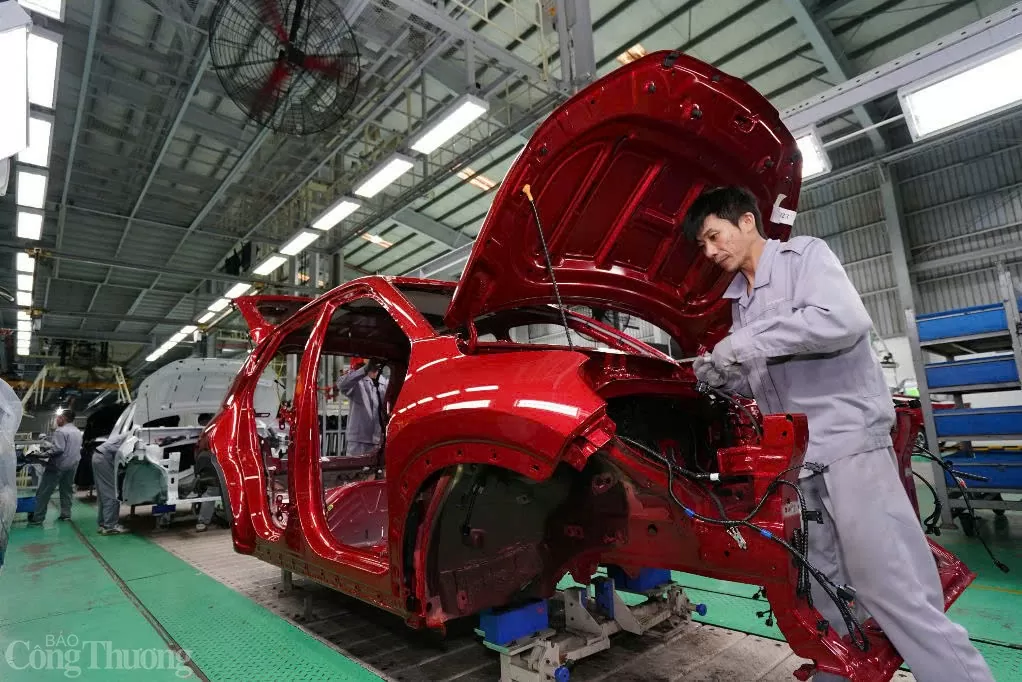 |
| The auto industry is moving towards integrating into the global supply chain - Photo: Can Dung |
Besides, the domestic automobile manufacturing and assembly industry has not yet created cooperation - association and specialization among enterprises in automobile manufacturing - assembly and spare parts production; and has not yet formed a system of large-scale raw material suppliers and component production.
The localization rate for personal vehicles with up to 9 seats is lower than the set target and much lower than that of other countries in the region. Localized products have very low technology content.
Accordingly, regarding the future direction for the automobile manufacturing and assembly sector, the Department of Information Industry will develop and promulgate the Vietnam Automobile Industry Development Strategy to 2030, with a vision to 2050 (replacing the Vietnam Automobile Industry Development Strategy to 2025, with a vision to 2035 approved in Decision No. 1168/QD-TTg dated July 16, 2014 of the Prime Minister).
In particular, updating and proposing trends and roadmaps for developing new generation vehicles and environmentally friendly vehicles, contributing to the implementation of the goal of reducing CO2 emissions according to Vietnam's commitment at the COP26 Conference, aiming at the production goal to reach the export market. At the same time, closely coordinating with Associations and enterprises to continue to remove difficulties in production and business activities of the automobile industry.
According to the Department of Industry, 2025 is expected to continue to be a difficult year for the domestic automobile industry. Therefore, the Ministry of Industry and Trade will coordinate with relevant agencies to continue researching and proposing support and incentive policies for the industry (such as registration fees, special consumption tax, import tax on components and accessories for domestic automobile production and assembly, etc.) to maintain the operations of domestic automobile enterprises in case the consumption output of the automobile industry continues to decrease.
On the other hand, continue to support localities in seeking and attracting FDI investment from large automobile and auto parts manufacturing corporations in the world. Effectively implement activities to support enterprises in the automobile supporting industry according to the contents of the Supporting Industry Development Program approved by the Prime Minister in Decision No. 68/QD-TTg dated January 18, 2017 to form a system of domestic suppliers of raw materials and large-scale component production through cooperation - association and specialization between enterprises in automobile manufacturing - assembly and production of spare parts and components at home and abroad.
In addition, coordinate with the Ministry of Finance and relevant agencies to research and perfect the system of policies and laws on incentives and support for electric cars according to the principle of applying different incentive levels for each electric car model based on the level of CO2 emissions into the environment.
Coordinate with relevant agencies to research, develop and perfect the system of standards and regulations in the automobile industry - especially electric cars and components, spare parts and infrastructure systems for the electric car industry (such as charging stations, charging ports, etc.).
According to the General Statistics Office, the motor vehicle production index in November 2024 is estimated to increase by 2.5% compared to October 2024 and increase by 36.2% compared to November 2023. In the first 11 months of 2024, the motor vehicle production index increased by 18.3% compared to the same period in 2023 (higher than the 14% growth rate in the first 10 months of 2024). In November 2024, Vietnam produced and assembled an estimated 47.3 thousand cars, up 3% compared to September 2024 and up 47.8% compared to October 2023. Thus, domestic car production has had its 8th month of growth since the beginning of 2024 and the 6th consecutive increase. |
Source: https://congthuong.vn/o-to-san-xuat-trong-nuoc-da-vuon-ra-thi-truong-khu-vuc-va-quoc-te-366577.html




![[Photo] Schools and students approach digital transformation, building smart schools](https://vstatic.vietnam.vn/vietnam/resource/IMAGE/2025/3/29/9ede9f0df2d342bdbf555d36e753854f)
![[Photo] Unique Ao Dai Parade forming a map of Vietnam with more than 1,000 women participating](https://vstatic.vietnam.vn/vietnam/resource/IMAGE/2025/3/29/fbd695fa9d5f43b89800439215ad7c69)
![[Photo] Brazilian President visits Vietnam Military History Museum](https://vstatic.vietnam.vn/vietnam/resource/IMAGE/2025/3/29/723eb19195014084bcdfa365be166928)






















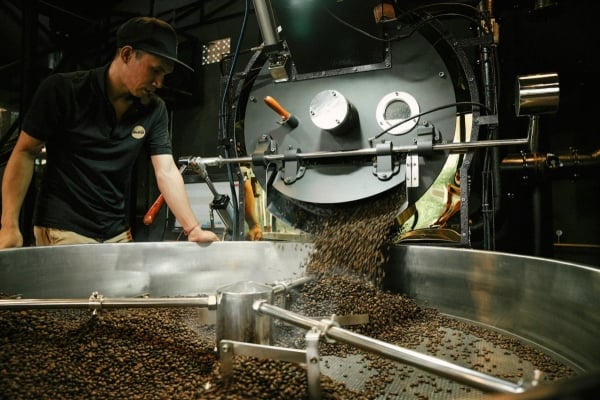
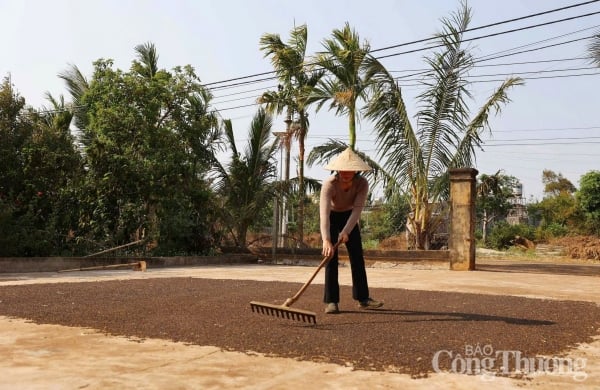
![[Photo] Training the spirit of a Navy soldier](https://vstatic.vietnam.vn/vietnam/resource/IMAGE/2025/3/29/51457838358049fb8676fe7122a92bfa)













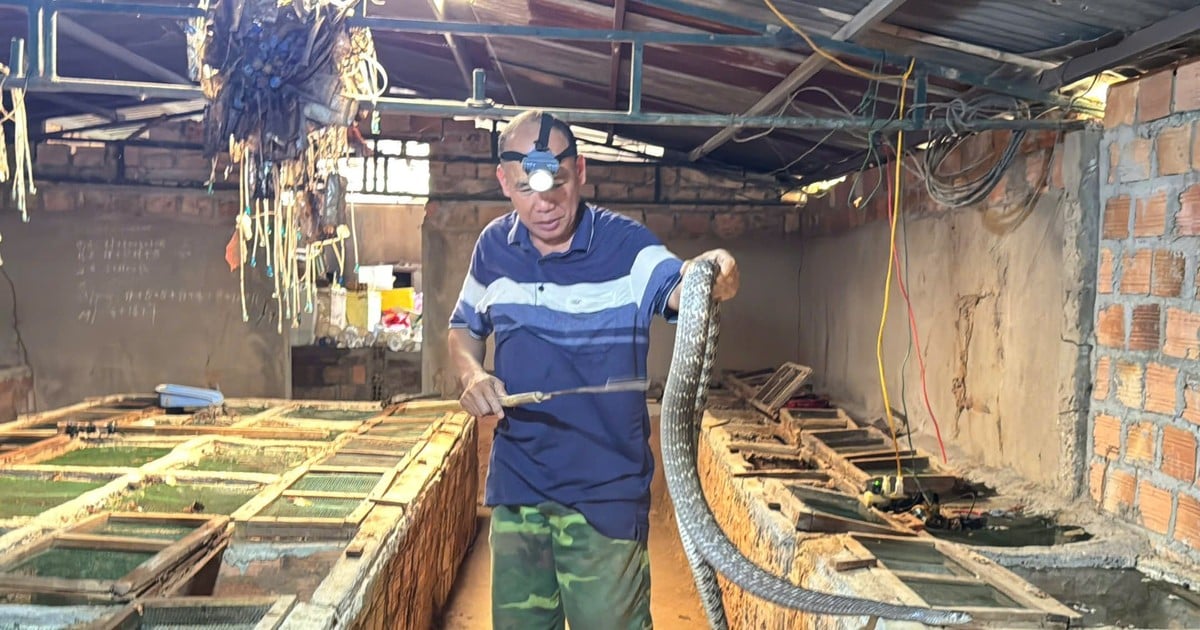
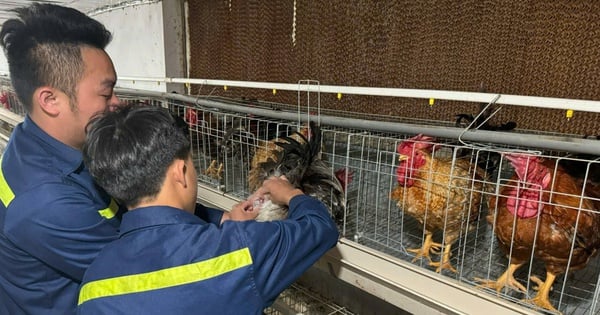



















































Comment (0)